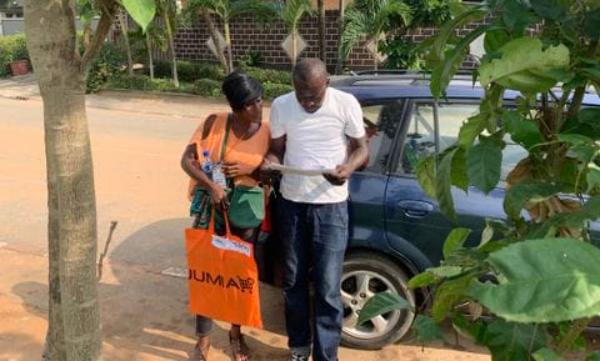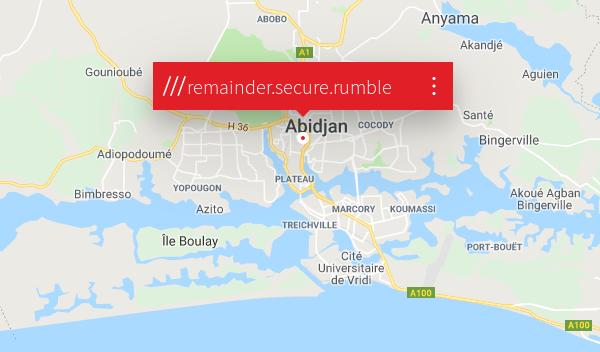The Amazons of Africa face TWO big challenges, not one
A quest for addresses may send Africa down the wrong path.
Due to bureaucratic obstacle of all sorts, in Ivory Coast it is easier to buy goods from Germany than neighboring Ghana. Other factors that stifle Amazon-like e-commerce in all of Africa are fears of robbery, dominance of cash and, above all:
Lack of addresses

Few of the 4.4 million residents of the capital, Abidjan, have numbers on their houses. Two years ago, this city was mentioned as a user of the funny addressing system what3words, but it seems that nobody on the ground noticed. Otherwise, why would AbidJan be used as a great example of the big “no addresses” challenge faced by the Amazon of Africa?
Wanted: e-commerce in Africa
- Africa’s biggest web retailer, Jumia, has approximately 4 million users in 14 countries
- today only 1% of goods sold in Africa are purchased on a screen
- if that figure were 10%, it would mean $75 billion of annual sales, that would “unleash an economic boom and a new age of convenience on the continent”
- When Jumia was listed on Wall Street, experts nicknamed it “the Amazon of Africa”
- and critics noted that a digital marketplace steered by Europeans shouldn’t be called African
Jumia’s first earnings report as a public company show quarter losses “deepened to nearly $51 million from $38 million”. One big reason is the lack of addresses above, pluse the fact that, in much of Africa, “No one can rely on GPS”. This is why:
- Half of Jumia’s packages in Africa go to pickup centers
- Otherwise, many customers tell drivers to meet near some landmark, and often make them wait a lot before they show up
The other BIG challenge of e-commerce in Africa
Theoretically, Abidjan’s lack of addresses may be managed with that what3words thing:

albeit it would do nothing to overcome that other little obstacle to same-day delivery, in Africa and elsewhere. But never mind that obstacle: the main challenge I see in Jumia or anybody else becoming the “Amazon of Africa” is the toxicity of same day delivery. Africans have the same rights to a digital marketplace as everybody else. But I dare suggest that:
- Modern location/addressing systems must be implemented anyway, but their current lack not could give time to find better e-commerce systems, instead of falling in a trap
- Africans should not pay for it with the same, staggering amount of pollution and USELESS purchases caused by extra-quick delivery that we are letting the first Amazon impose on the world
- what we ALL need, instead, is worldwide open standards for federated shipping. Could Africa, which is ahead of Europe with mobile payment systems like M-Pesa, lead the way with shipping too?
Who writes this, why, and how to help
I am Marco Fioretti, tech writer and aspiring polymath doing human-digital research and popularization.
I do it because YOUR civil rights and the quality of YOUR life depend every year more on how software is used AROUND you.
To this end, I have already shared more than a million words on this blog, without any paywall or user tracking, and am sharing the next million through a newsletter, also without any paywall.
The more direct support I get, the more I can continue to inform for free parents, teachers, decision makers, and everybody else who should know more stuff like this. You can support me with paid subscriptions to my newsletter, donations via PayPal (mfioretti@nexaima.net) or LiberaPay, or in any of the other ways listed here.THANKS for your support!